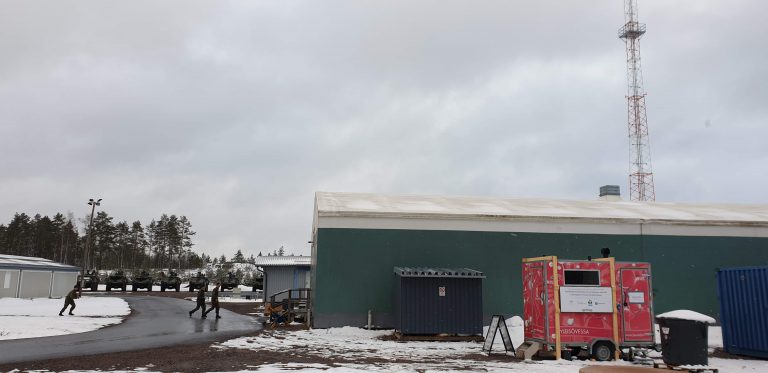In early 2019, we designed and installed a pilot shell system to dry fresh urine collected from about 100 toilet users each day (or a maximum of 30 liters of urine day-1). The system was implemented at a Finnish army training ground (Camp Mauri) belonging to Pori Brigade, which is a garrison in Säkylä, Finland and was used for a period of three months between March and May 2019. In a new publication in the journal Frontiers in Environmental Science, we describe results of the evaluation of the technology. The publication can be openly accessed here:
Simha P, Karlsson C, Viskari E-L, Malila R and Vinnerås B (2020). Field Testing a Pilot-Scale System for Alkaline Dehydration of Source-Separated Human Urine: A Case Study in Finland. Front. Environ. Sci. 8:570637. doi: 10.3389/fenvs.2020.570637

ABSTRACT: Alkaline dehydration can treat human urine to produce a dry and nutrient-rich fertiliser. To evaluate the technology at pilot-scale, we built a prototype with capacity to treat 30 L urine d-1 and field tested it for the first time at a military training camp in Finland. We operated the system for three months and monitored the recovery of nutrients, end-product composition, physicochemical properties and energy consumption. Results revealed that the system received less urine than anticipated, but achieved high dehydration rates (30-40 L d-1m-2), recovered 30 ± 6 % N, and yielded end-products with 1.4% N, 0.9% P, and 8.3% K. However, we demonstrated that the system had potential to recover nearly 70% N and produce fertilisers containing 13.2% N, 2.3% P, and 6.0% K, if it was operated at the design capacity. The energy demand for dehydrating urine was not optimised, but we suggested several ways of reducing it. We also discussed concerns surrounding non-essential heavy metals, salts, and micropollutants, and how they can be overcome to safely recycle urine. Lastly, we pointed out the research gaps that need to be addressed before the technology can be implemented at larger scale.
Contact: Prithvi Simha
